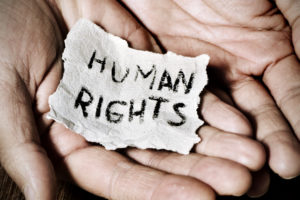Spirited Reflection: Finding safety and justice for migrant workers

Epiphany continues February 24 with KAIROS reflections in Light of a Star (digital) (print), the Epiphany Resource.
Heide and Richard’s Story
Two workers at a McDonald’s in Fernie, B.C. ‒ Heide and her boyfriend, Richard ‒ alleged that the owner, Pierre Pelletier, “often made sure that the overtime that was paid came back to him, in cash, even driving employees to the bank and waiting while they cashed their paycheques.” (CBC News, 2013).
Social justice advocates have a long list of concerns when it comes to the safety and equity of migrant workers in Canada. Migrant workers are brought to Canada to fill a labour market need – in the case of the so-called “low skilled” stream – it is to do a job that most Canadians do not want to do. This sets up a mentality of class differences between those who do desirable work and those who do undesirable work. Further, the federal Temporary Foreign Worker Program sets migrant workers at a further disadvantage and exposes them to potential abuse in several different ways. Human rights abuses can begin even before workers arrive.
Their work permits are specific to one employer who has shown that the position could not be filled by a Canadian. These are called “tied work permits.” Generally, if the worker loses that job, they need to return home. In other words, the employer has the power to have the worker deported if they are displeased. This system leaves workers vulnerable to abuse of all sorts. It is very difficult to refuse unpaid overtime, dangerous work, or even sexual advances when you fear that you will be deported if you speak up.
According to the Canadian Council of Refugees, fees meant to be paid by the employer, such as recruitment fees, are sometimes downloaded to the worker. Although workers are not to be charged recruitment or application fees, this is happening. If their work permit expires or is revoked, the worker is left in debt to the recruiter and vulnerable to further abuse such as human trafficking.
The desperation to find work that drives people to consider leaving their country to earn a living even at a low-wage job makes them susceptible to exploitation from recruiters. The situation is compounded since needs that might be easily met for citizens go untended for migrant workers due to their ineligibility or the barriers to accessing support services.
Jesus taught, “Do to others as you would have them do to you.” No one would want the infringement of rights that many migrant workers regularly experience. Protection of workers’ rights would be vastly improved with open work permits and even more so, by permanent residence status.
When a migrant worker receives permanent residence status, they no longer need a work permit and have much more freedom to seek or to leave any work they can find. This is the best solution. Until that is possible, at a minimum the Canadian government should issue “open work permits.” This would mean that a worker is still restricted in many ways, but there is an option to seek work with a different employer if the first employer is unfair or unsuitable in any way. To change from a tied to an open work permit significantly decreases the vulnerability of the worker.
Prayer: Almighty God, you challenge the status quo. You call us to be instruments of your peace. You challenge the comforts and privileges for some while others are in need. May we answer the call to be part of your liberating work for all people.
We hope and pray for a world in which the rights and dignity of all people are equal. Nourish and sustain us as we work toward this vision of equity and justice. Grow in us good and generous hearts that we might live out this calling wholeheartedly, treating all others as we would want to be treated. Transform us into agents of change who strive to make life for migrant workers more just and equitable.
This reflection was a compilation from the some of the Epiphany team of writers: Rev. Dr. Sarah Travis, Rev. Laura Sauder, Carolyn Pogue, Connie Sorio, Elena Tkacheva, Rick Garland, Anna Jacobs, and Shannon Neufeldt.











